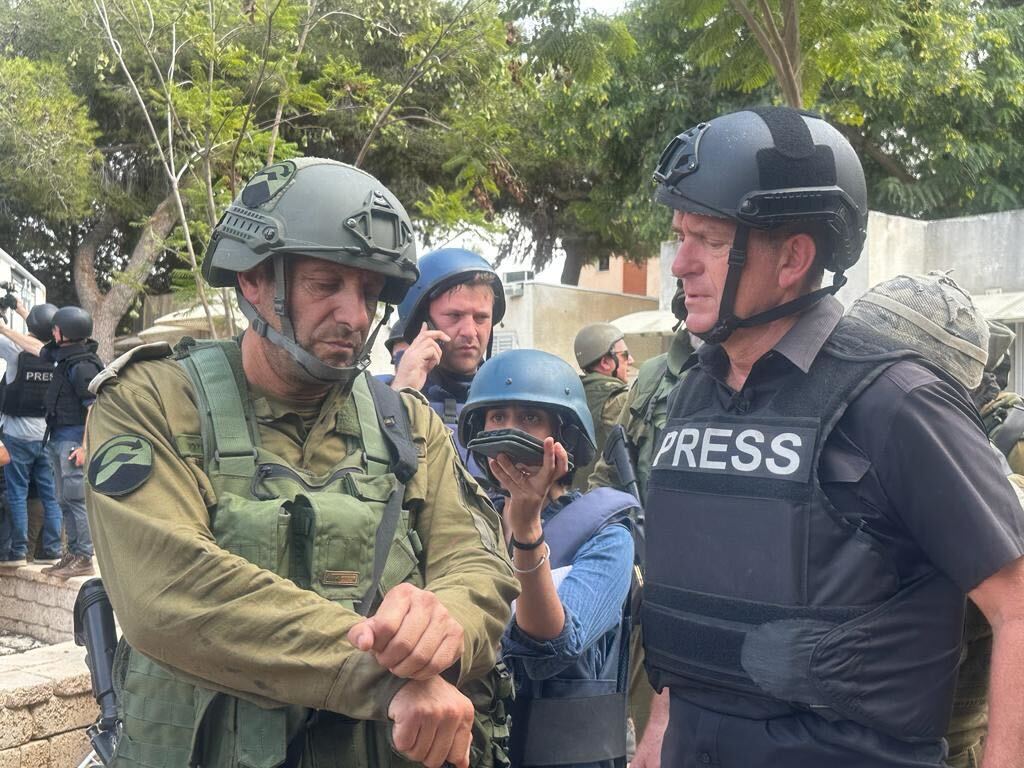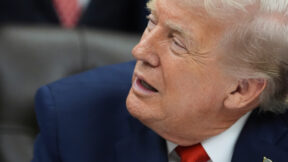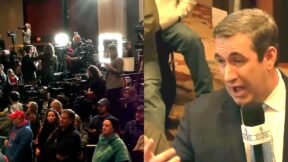‘Something Barbaric Has Happened Here’: CNN Reporter’s Firsthand Account of Covering the Israel-Hamas War

Photo by Joel Bennett
“I saw on the ground just a mass of blood and the smell of decaying human tissue and blood on the walls and even blood on the ceiling,” said Nic Robertson, CNN’s international diplomatic editor. “You just know that something barbaric has happened there.”
Robertson, a veteran foreign correspondent who has covered war since the 1990s, was describing what he witnessed firsthand at Kibbutz Re’im in Israel, one of the places where Hamas carried out its horrific attack on Saturday that left 1,200 Israelis dead, the vast majority of them civilians.
Robertson spoke with Mediaite on Wednesday night from the Israeli city of Sderot, near the Gaza border, about the horrific aftermath of the violence.
“There were bullet holes in the concrete walls and you could just see this really vivid picture of people crowded in there cowering and the Hamas gunmen just coming up and shooting them in cold blood,” he said.
Soon after Hamas carried out the massacre and kidnapped an estimated 150 Israelis, taking them back to Gaza where they are being held as hostages, Israel declared war on the terrorist group and began a bombing campaign of the strip.
Robertson explained the logistical challenges of covering a war from Sderot, which is now entirely deserted by civilians, with a major presence of Israeli soldiers taking control.
“We’re in a closed military area. So even when we drive out of here, we’re not sure if we can get back everything that we need, water to drink, food to eat, fuel for the vehicle has to be purchased 20, 30 miles away from here, outside of the controlled zone. So there’s that logistical issue,” Robertson said.
“We woke up this morning, there was no electricity in our house,” he continued. “There was no internet on the cell phone service. So we were out of communications. We can make phone calls, but no internet. So it’s all these little logistical things. And they add up to time. They add up to you getting to where you need to be, to trying to get to where the news is.”
Despite those challenges, Robertson weighed in on the importance of “bearing witness” to the bloody, gruesome realities of the Hamas attack.
“I think it’s really important that we’re not showing a black and white image of a color situation,” he said. “And what I mean by that is, we provide detail, like going into that rocket shelter where so many people were killed and telling vividly but compassionately and with thought.”
Robertson pointed out the importance of striking a balance between truth and compassion for the victims and their loved ones.
This is something that I think you need to be sensitive to the people who have just had such loss, but at the same time, don’t varnish up the situation. So people at home don’t understand precisely what’s going on. But in terms of the, you know, the brutality, you know, we were driving down the road and there were some cars at the side of the road, and there was a baby stroller next to one of those cars. I mean, try to imagine what was happening to the people in those cars when they got shot up and the baby stroller was out in the road. I think it’s important to try to communicate that to the audience so that they appreciate the intensity, the magnitude, the shock of what’s happened here.
Each moment is touch-and-go for Robertson and his crew, which includes a security expert to help navigate the ever-changing landscape of covering an active war-zone:
We have body armor. We have bulletproof vests. We have helmets. We also have an armored vehicle. So even when there’s a threat of rocket strikes or shrapnel, even if we’re away from shelter, we can still be safe. It’s an important part of operating here. The house that we’re in has a rocket shelter. All houses here do. But we’re very familiar with that, where that is, we can get there quickly. Everything that we do, we have a plan for how to be safe. If the rockets come in, you only have about six or seven seconds when the sirens go off to get somewhere safe. We have a security expert with us. He’s in touch with a wider team. We’re in touch here with the local army unit on the ground, the local police unit on the ground, the local ambulance station, the medics there. We’re in touch with all of them. We’ve got plans in there – what to do if this situation happens. We’re always thinking about security and being safe.
“We are in an active military zone, this area. It has so few civilians now and lots of troops,” Robertson said. “And there’s a feeling of momentum towards an even bigger build up for a possible incursion into Gaza. So security is a priority. To keep reporting the story safely. So that’s always front and center of our thinking.”




